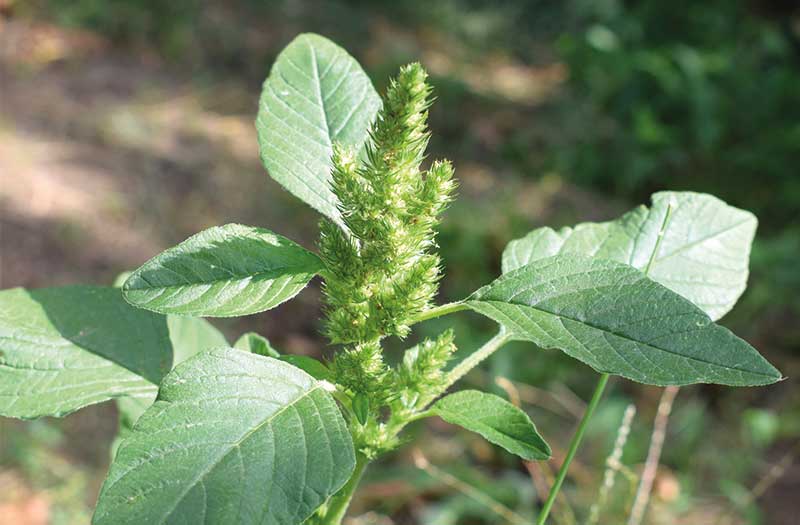The first report of target-site resistance to glyphosate in smooth pigweed (Amaranthus hybridus (syn: quitensis)) in South Africa was recently made by researchers at the South African Herbicide Resistance Initiative (SAHRI), based at the University of Pretoria.
Findings were reported in the international journal Weed Research, and also added to the International. Herbicide-Resistant Weed Database.
In the study done by SAHRI scientists, Amaranthus plants grown from seeds of resistant plants in the
Winterton area in KwaZulu-Natal survived applications of Roundup®PowerMax four times the recommended dose. “Molecular analysis indicated a rare triple mutation (TAP-IVS) in the KZN populations,” the authors wrote in the journal Weed Research. “This kind of mutation endows a high level of glyphosate resistance, which explains why these populations survived even the four-dose.”
Magunya Kalimashe, Villa portfolio manager for herbicides, points to contrasting weed management on the two farms in the study.
The Bergville farmer, who rotates Roundup Ready® (RR) maize and soybeans, relied heavily on glyphosate and used it consistently every season, which led to the development of
this highly resistant population of Amaranthus hybridus. The Winterton farmer, however, adopted a more
diversified approach, rotating herbicides with different modes of action.
“The situation in Bergville highlights the risks associated with monoculture systems and overreliance on a single herbicide, emphasising the need for diversified weed management strategies to combat herbicide resistance.”
Magunya says the response to this incident should not be to ask what alternatives to glyphosate are available, but rather how one can use available herbicides responsibly and sustainably.
“South African farmers plant a significant area of RR crops – cotton, maize and soybeans – and glyphosate is the most used herbicide in the country.
“If glyphosate resistance continues to spread in Amaranthus and other weed species populations, it can have long-term implications for agricultural sustainability. Farmers may face difficulties in controlling these resistant weeds, leading to increased herbicide use, crop losses, and economic consequences. We need to implement sustainable weed management practices.”

